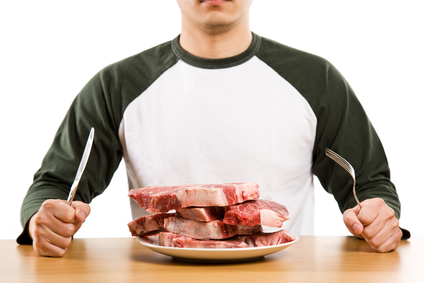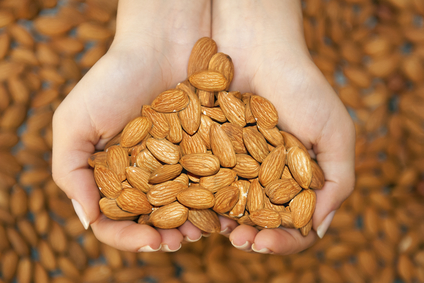Protein is an essential macronutrient for good health, and is especially vital for building and maintaining lean muscle mass. But how much is enough? How can you calculate how much you need? And can you have too much protein? In this blog post, we’ll explore these issues and break it down for you.
Why protein is important?
Protein is one of life’s essential nutrients. Brain cells, muscle, skin, hair and nails are just some of our body parts that are protein-based – in fact about half of the human body’s dry weight is made up of protein. The amino acids in protein are also necessary for the production of some hormones, such as adrenalin.
How much protein do you need?
Estimates vary on how much protein is needed, with some recommendations excessive in our opinion. The suggested guidelines from the Australian Institute of Sport strike a good balance. The Institute’s recommendation for sedentary men and women is 0.8g of protein per kilo of bodyweight per day. On average, a sedentary man needs 56 grams per day, and a sedentary woman needs 46 grams per day.
To put this in perspective, some examples of the amount of protein in food is:
- 85 grams of meat has about 21 grams of protein
- 1 egg contains about 6 grams of protein
- 2 tablespoons of peanut butter as 8 grams of protein
- ¼ cup of almonds has 8 grams of protein
Requirements are slightly more for some athletes, of up to 1.7g/kg/day for elite male endurance athletes, those at the start of an intense resistance training program, and those involved in power sports. Other people with higher protein requirements are pregnant and breastfeeding women, and people over the age of 50 to reduce the risk of age-related sarcopenia (muscle wastage).
But it is important to note that the guidelines from the Australian Institute of Sport are for athletes. If you are overweight or have a high body fat composition, it is advisable to calculate your protein requirements based on your lean muscle mass. A DEXA scan can give you an insight into how much lean muscle mass you have, accurate to the gram.
How to make sure you are getting enough protein?
Most Australians do get adequate protein in their diets, and as excess protein cannot be stored by the body there is no benefit to eating more than your body requires. However, it is most effective to eat protein at regular amounts throughout the day.
Protein deficiencies are most common in people following strict vegetarian or vegan diets. This is because most plant proteins are not complete – they do not contain all the essential amino acids that our bodies require. Soy products, quinoa and amaranth seeds do contain all the essential amino acids, but most plant proteins lack at least one amino acid. This means that vegetarians and vegans need to ensure that their diet contains a variety of protein foods from different plant sources to ensure they get an adequate mix of amino acids.
Inadequate protein intake is also a concern for people following fad diets such as long-term juice and vegetable fasts or the cabbage soup diet, and of course, those suffering from an eating disorder.
Too much of a good thing?

According to the Australian Institute of Sport, daily protein intakes under 2 g/kg of body weight in healthy people is unlikely to cause side effects. However, for people with pre-existing kidney disease high protein intakes can accelerate the disease progression. Other possible risks that are still being evaluated include an increased risk of osteoporosis due to an increase in calcium excreted in urine. The Australian Institute of Sport also warns that an excessive focus on high protein foods can displace other valuable foods – especially fruits and vegetables – from the diet.
Ultimately, it is important to eat a well-balanced diet that provides all your essential macronutrients as you strive to change your body composition and build lean muscle mass. Good overall nutrition will ensure that you have enough protein to build muscle, reduce fat and get lean.
For help on achieving your health and wellness goals, come in for a DEXA scan at Crows Nest. We can measure how much lean muscle mass you have accurate to the gram which will help you calculate your ideal protein intake. Sydney’s Body Measure can help you can change your body composition by discussing the optimal mix of nutrition and exercise best for YOU!



